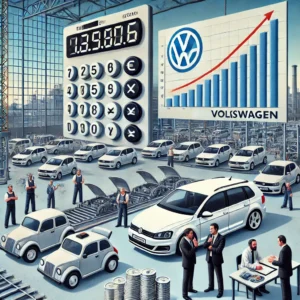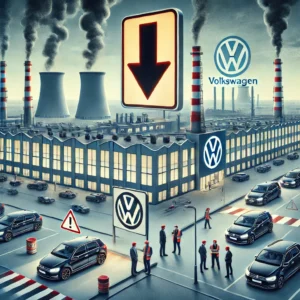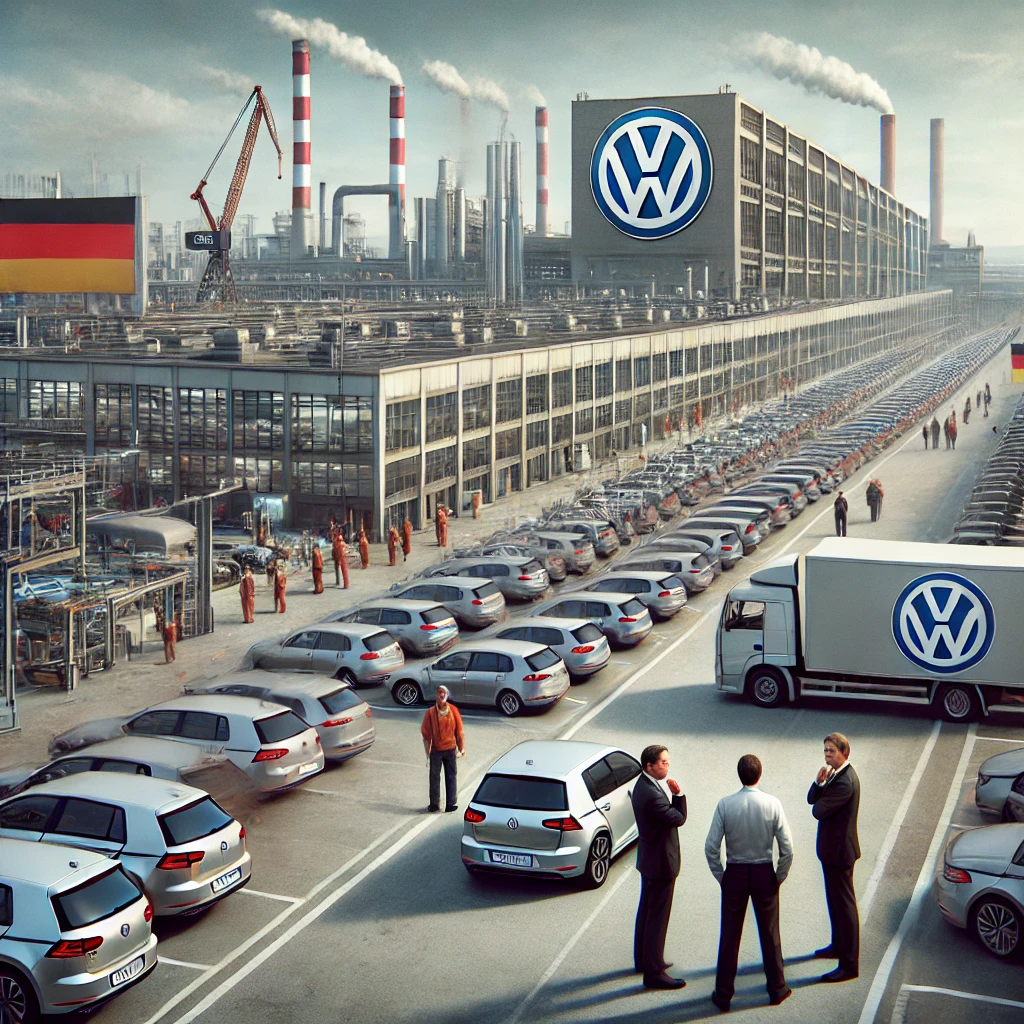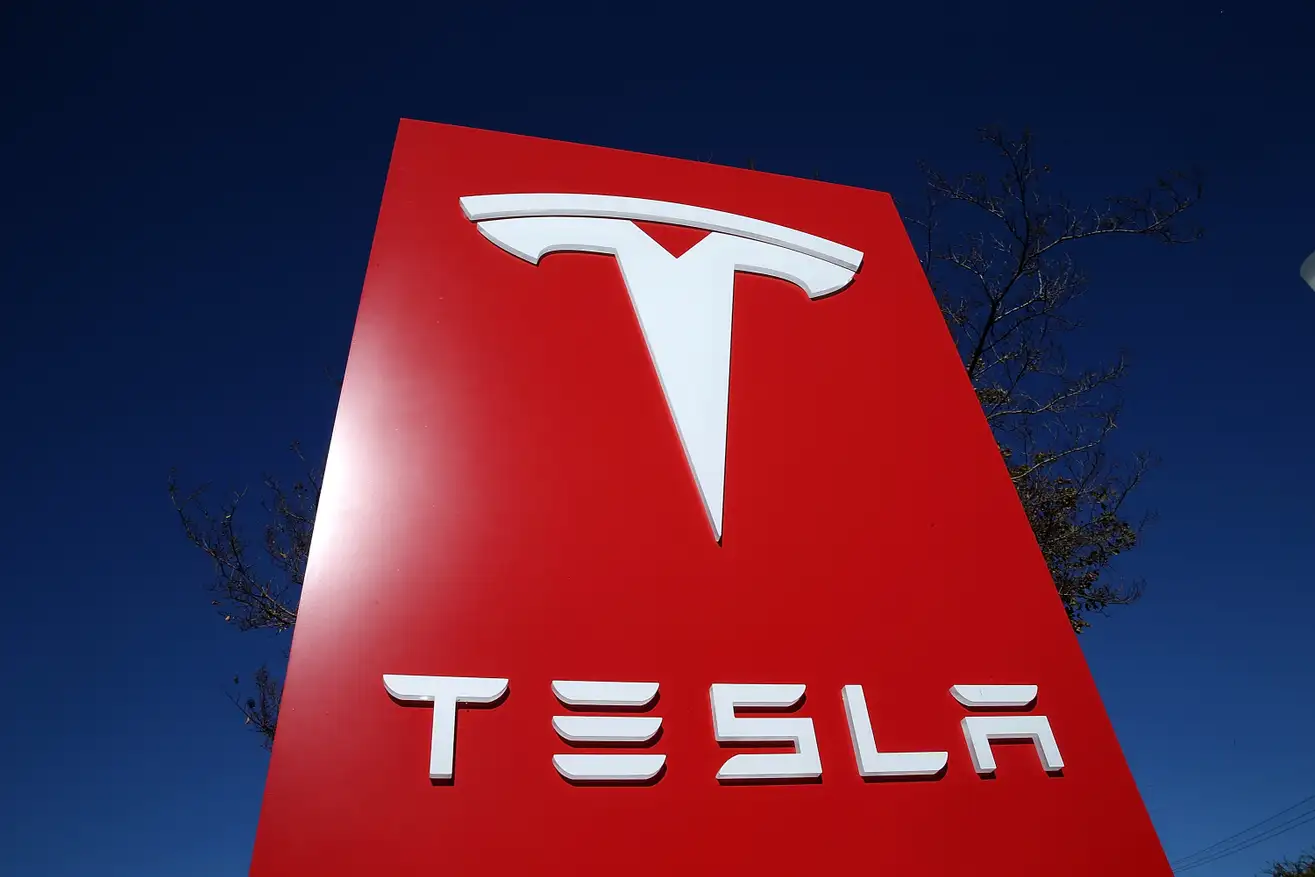Volkswagen, for the first time in its 87-year history, is considering closing its factories in Germany due to mounting financial pressures, shrinking vehicle sales, and lower-than-expected demand for electric vehicles. This drastic measure is part of a broader initiative to save €10 billion by 2026, as the company navigates a rapidly evolving automotive market and intensifying global competition. Volkswagen’s move reflects the growing challenges traditional automakers face in adapting to the shift toward electric mobility and sustaining profitability in a competitive environment.
The Financial Crisis Facing Volkswagen
Volkswagen’s iconic reputation as a symbol of German industrial strength is under threat. The company is grappling with an array of financial challenges, stemming primarily from the sluggish demand for EVs and a drop in overall car sales in Europe. Volkswagen’s Chief Executive Officer, Oliver Blume, has emphasized that the company’s core brand is unlikely to meet its cost-saving targets without making tough decisions, including the possibility of factory closures.

Volkswagen has already attempted cost-cutting measures, including workforce reductions through retirements and voluntary buyouts. However, these efforts have proven insufficient to address the company’s financial strain. The need to downsize operations is driven by the shrinking European car market, which has not fully rebounded since the COVID-19 pandemic. Chief Financial Officer Arno Antlitz noted that the European market is currently short by approximately 500,000 cars annually, equating to the production capacity of around two factories.
Why Factories Are at Risk
Volkswagen operates ten key assembly and parts plants in Germany, employing 120,000 workers out of a global workforce of 684,000. The looming decision to close some of these factories is driven by plummeting sales of traditional combustion vehicles and a slower-than-anticipated shift to electric vehicles. Despite a global emphasis on sustainability, demand for Volkswagen’s EVs has been underwhelming, compounded by rising competition from Chinese manufacturers offering more affordable alternatives, further intensifying the company’s financial and market struggles.

Volkswagen is grappling with increased operational expenses, particularly rising wages, which have further squeezed its profit margins. In the first half of 2024, the company posted an operating profit of €10.1 billion, marking an 11% decline compared to the previous year. Restructuring costs, including workforce reductions and wage hikes, have added financial strain, especially on its core passenger car segment. If factory closures proceed, it would represent a significant shift for Volkswagen, marking the first time the company would shutter plants in Germany since its founding.
Broader Implications for Germany
The potential closure of Volkswagen’s factories in Germany has ignited widespread debate, drawing sharp reactions from labor unions and political leaders. Daniela Cavallo, chair of the company’s works council, voiced strong opposition, arguing that downsizing would not resolve Volkswagen’s underlying challenges. She urged the company to prioritize innovation and competitiveness instead of workforce reductions. German politicians are also alarmed by the economic and symbolic consequences, as Volkswagen has long been a cornerstone of the nation’s industrial strength and pride. The closures come amid growing political tension and public dissatisfaction.
Chancellor Olaf Scholz has discussed the situation with both Volkswagen management and workers, emphasizing that while the decision rests with the company, it has far-reaching consequences for the nation’s economy and the future of its automotive industry. Volkswagen’s decision will likely have ripple effects, impacting not only the workers directly employed by the company but also the broader supply chain, which includes numerous German businesses.



